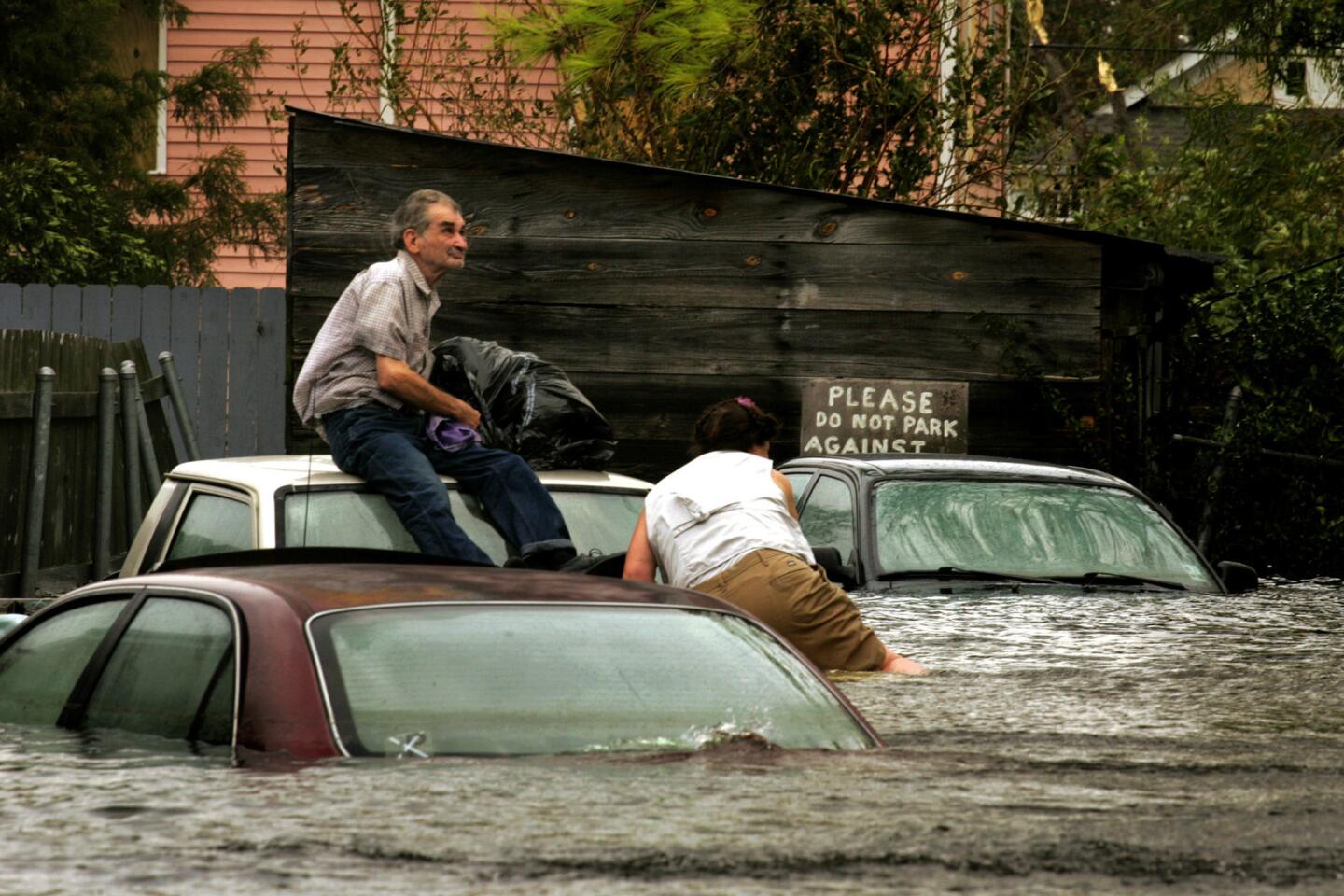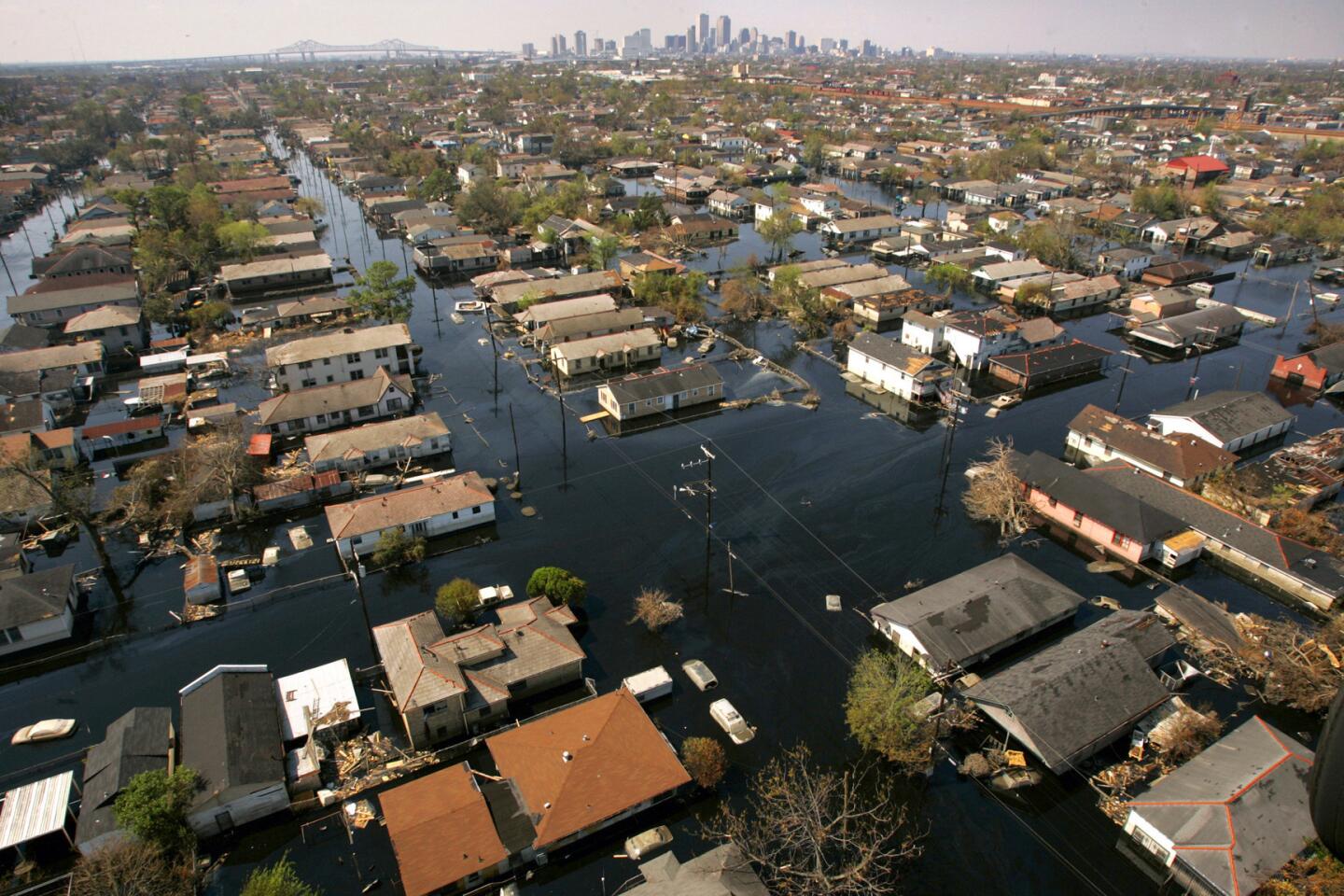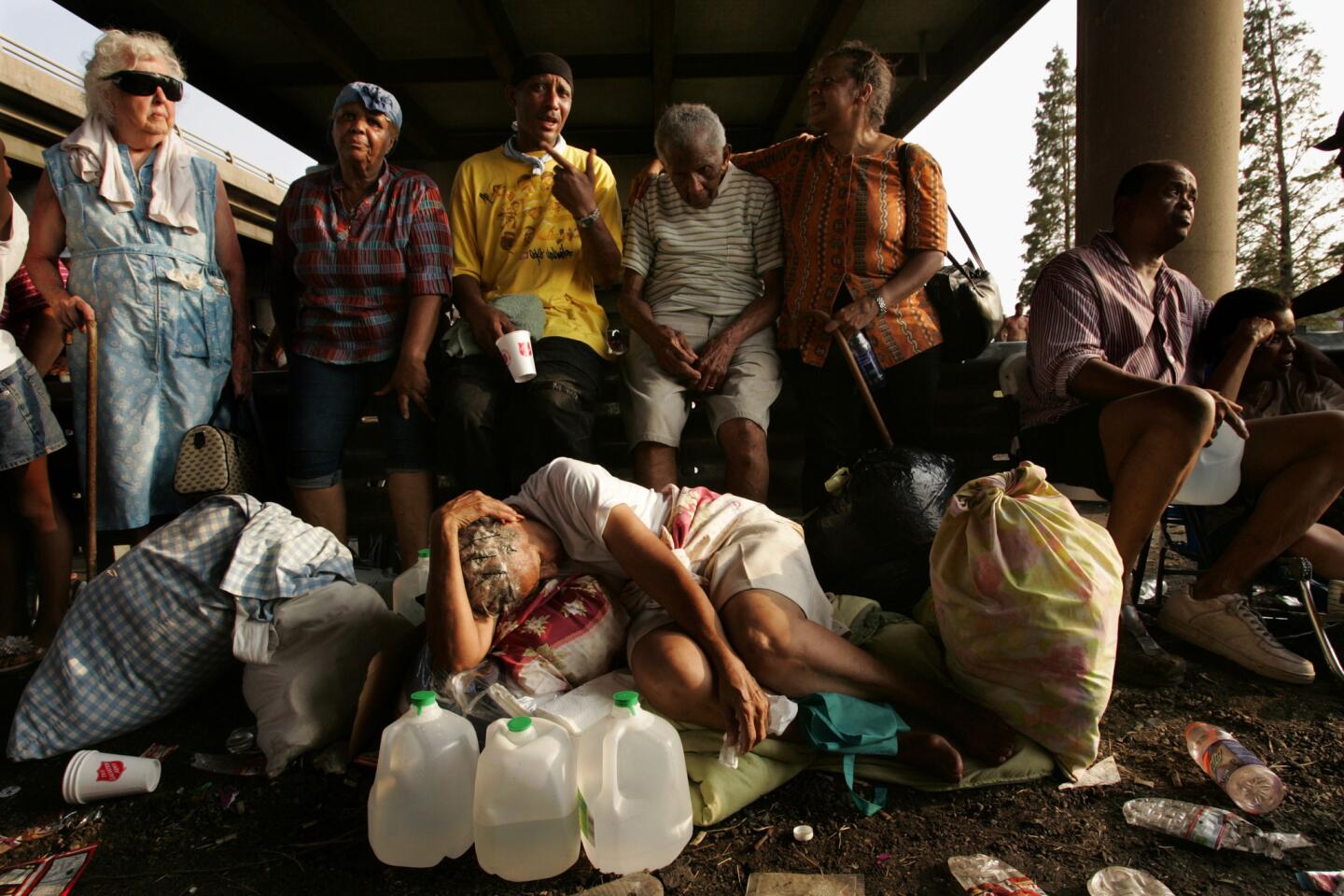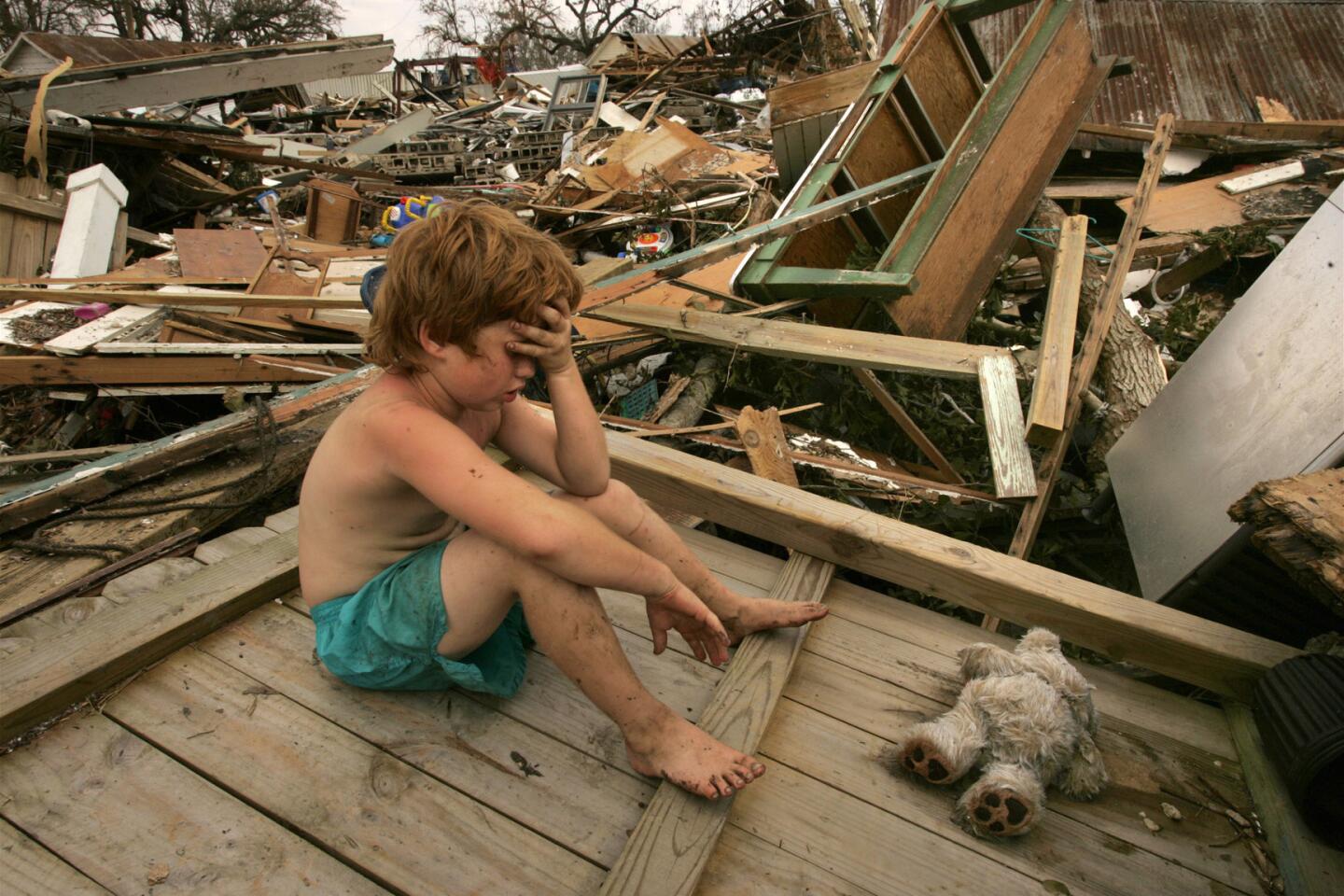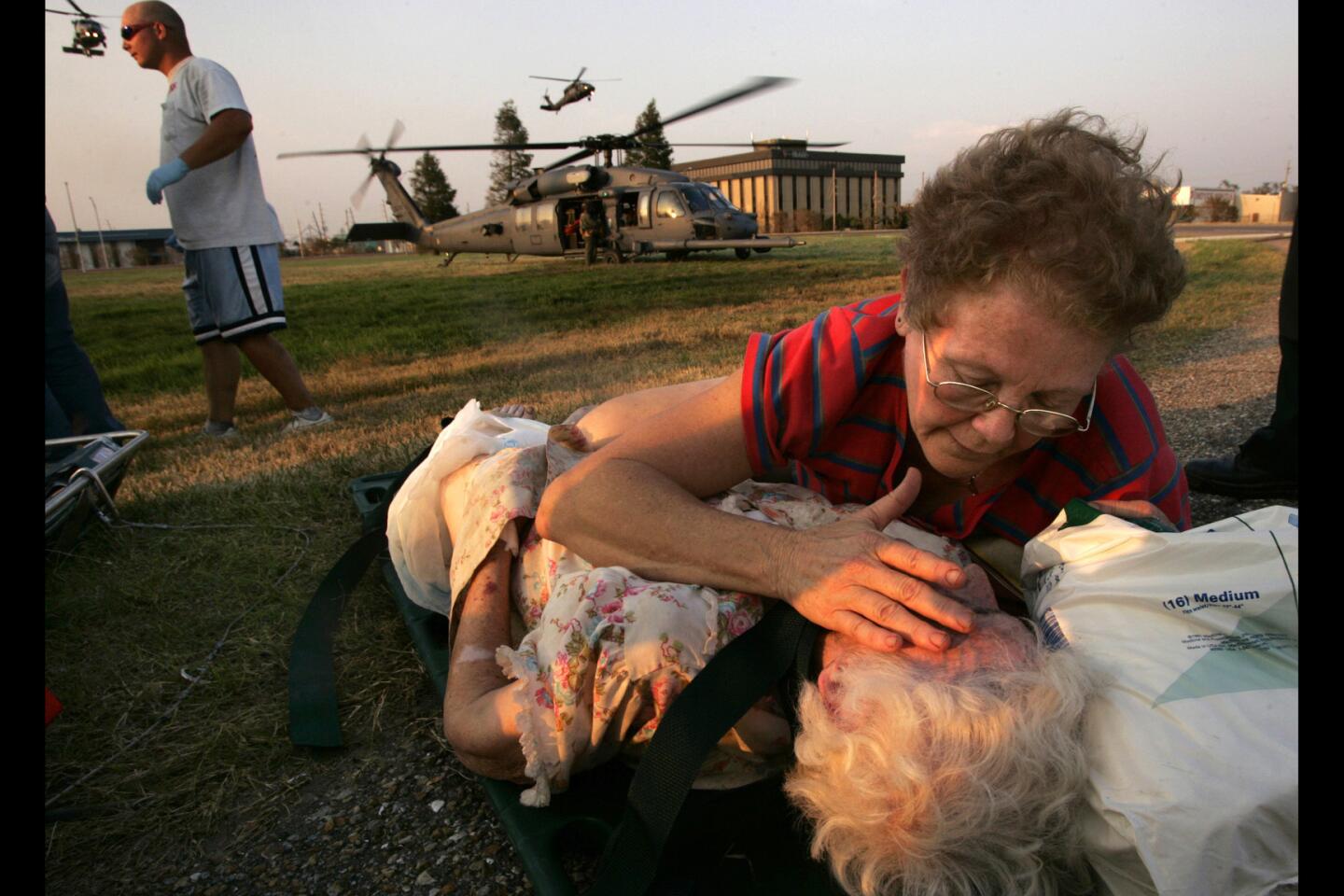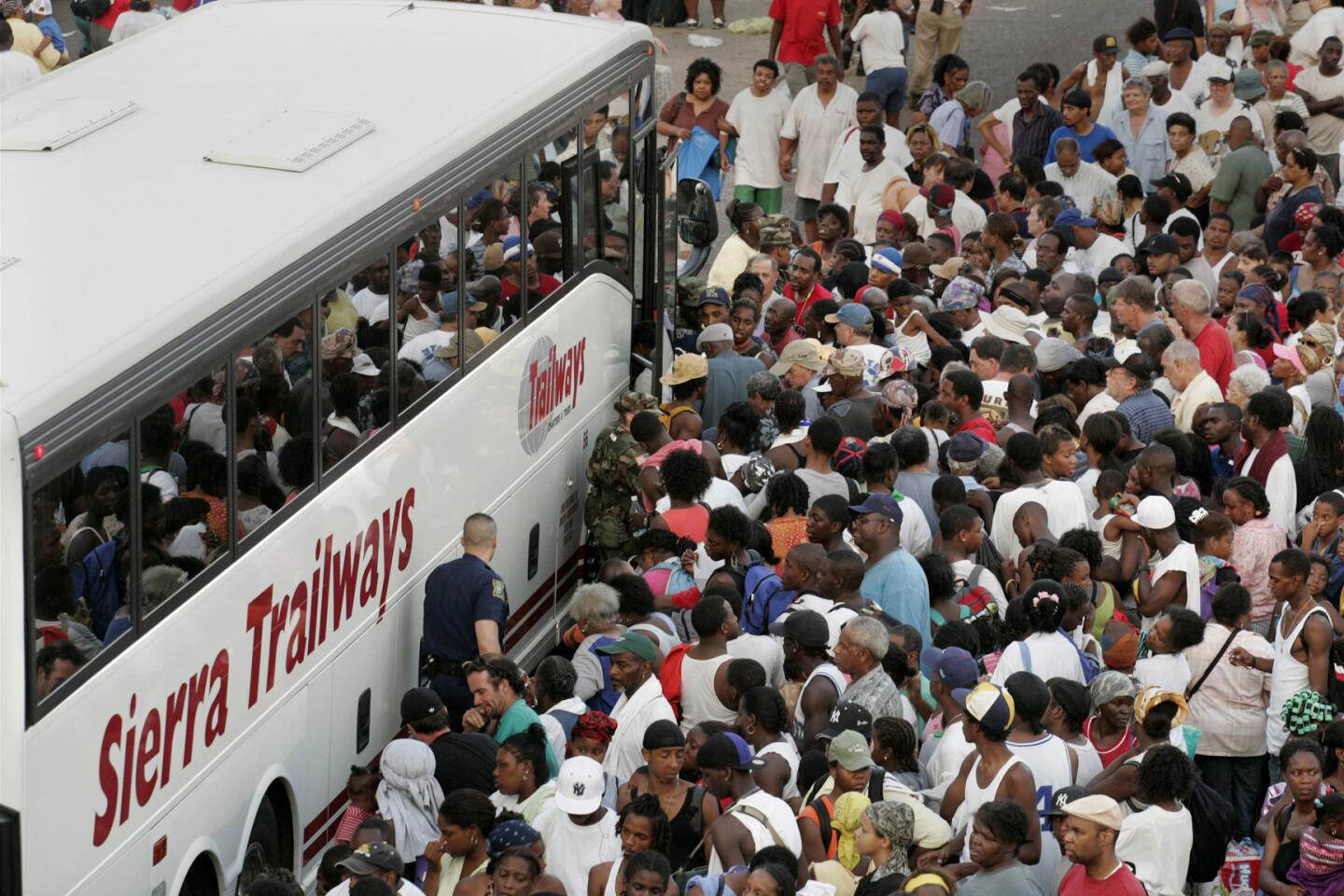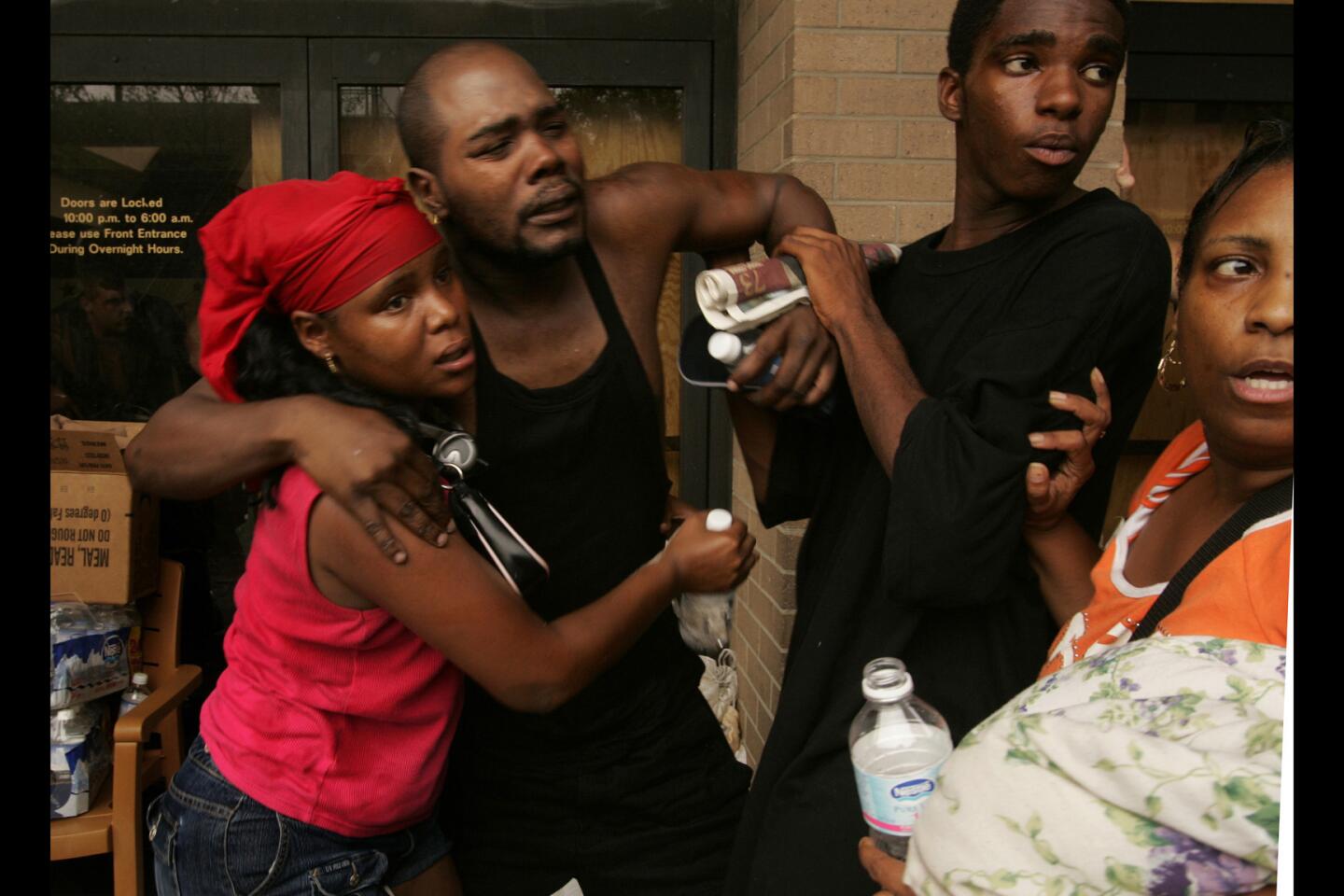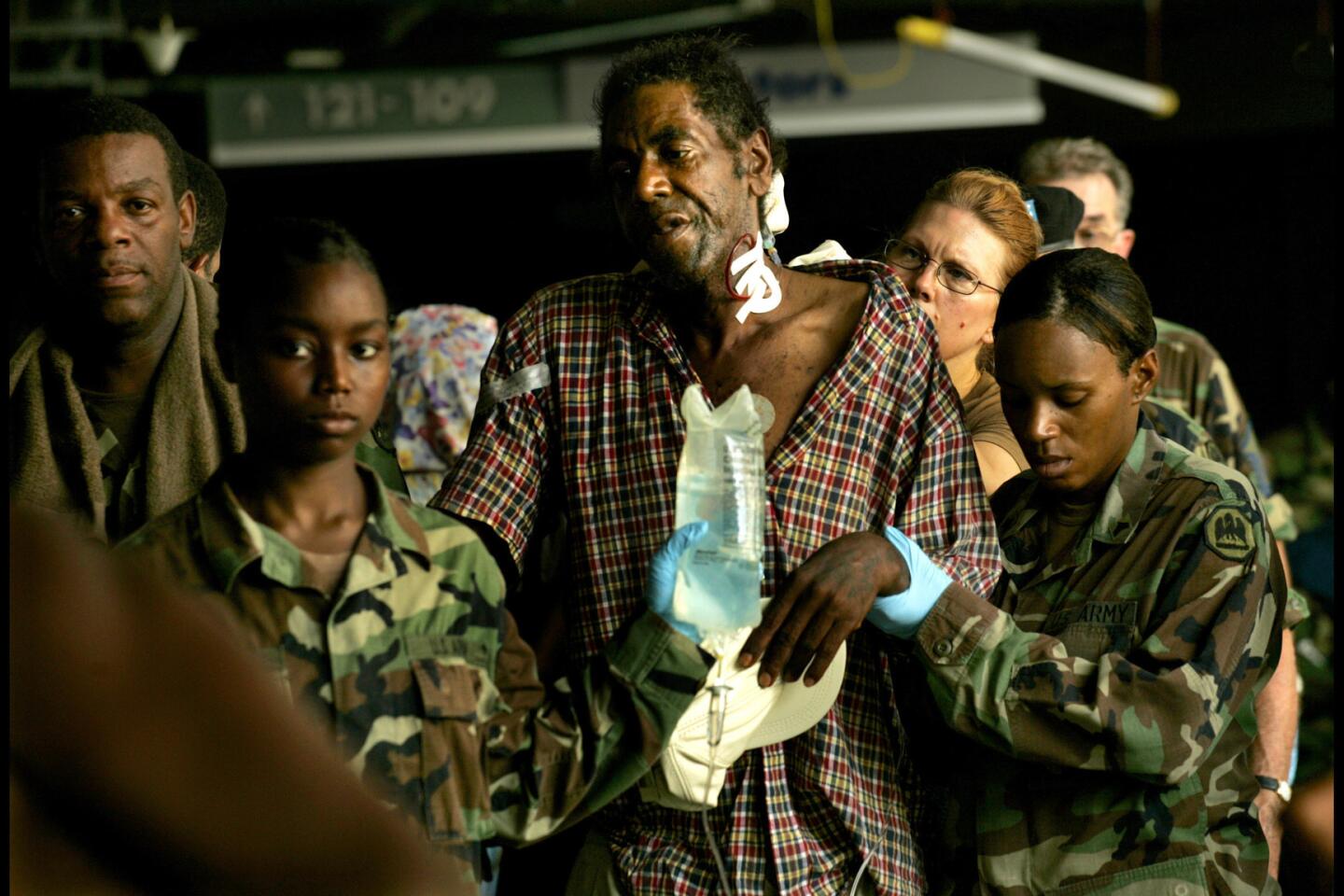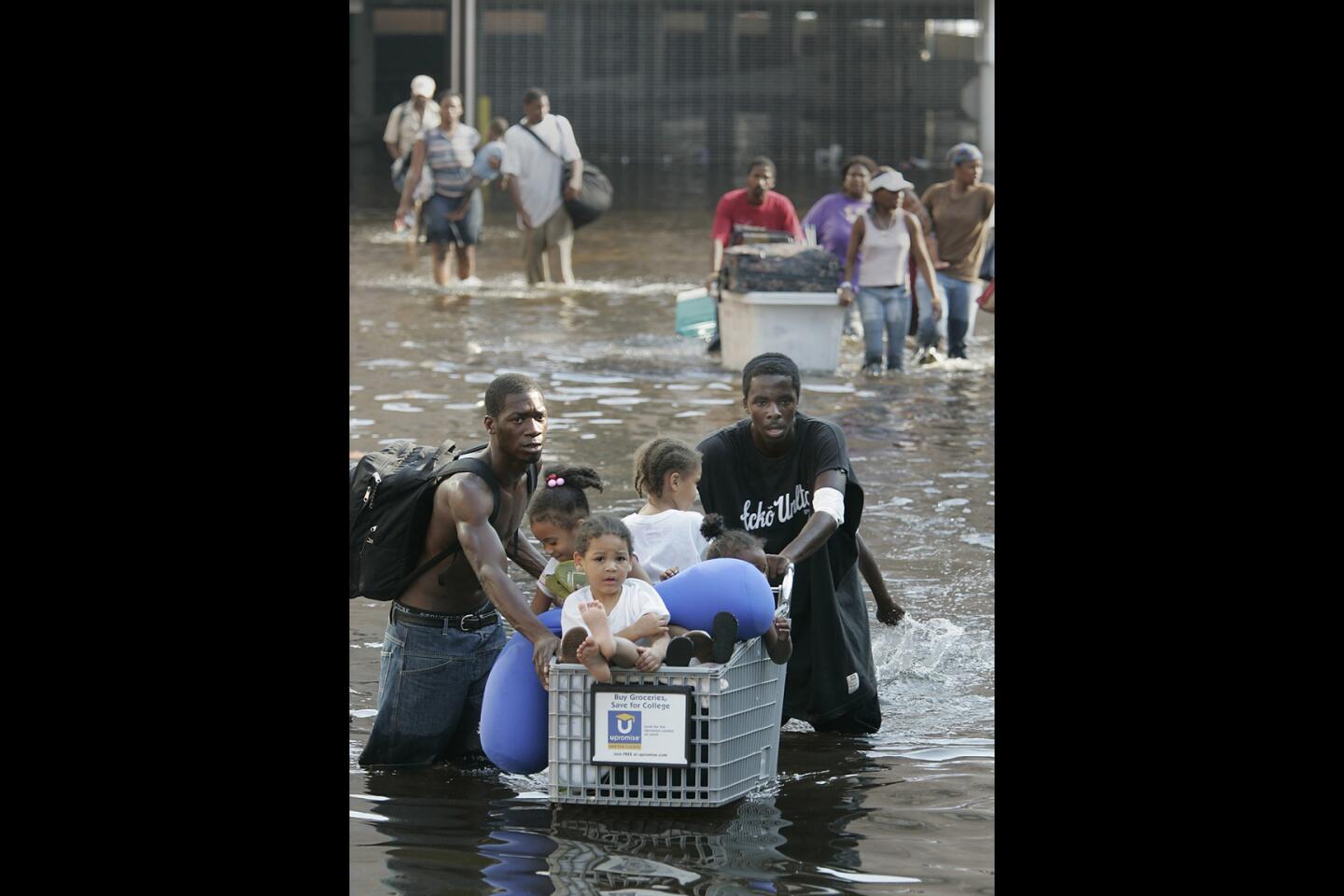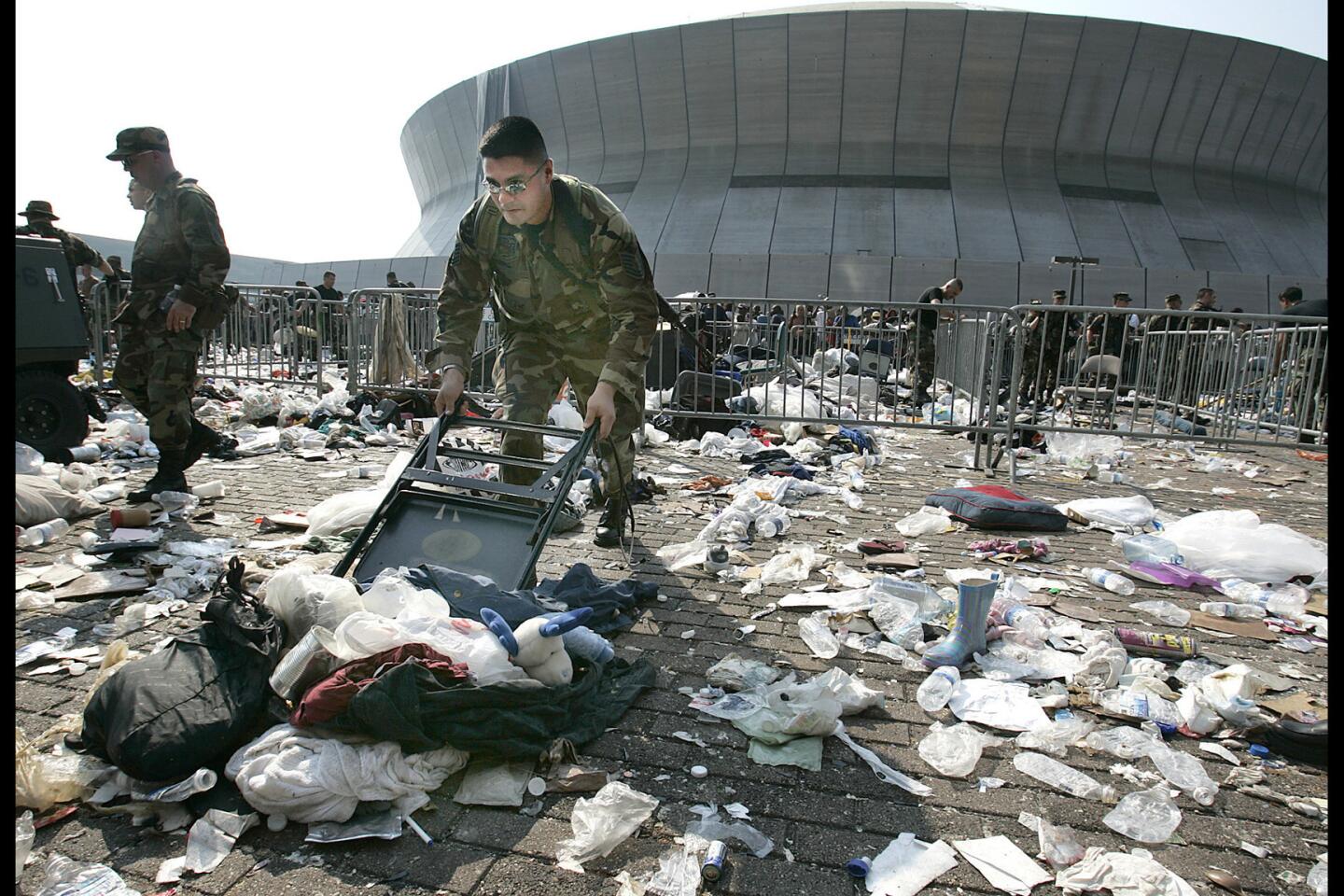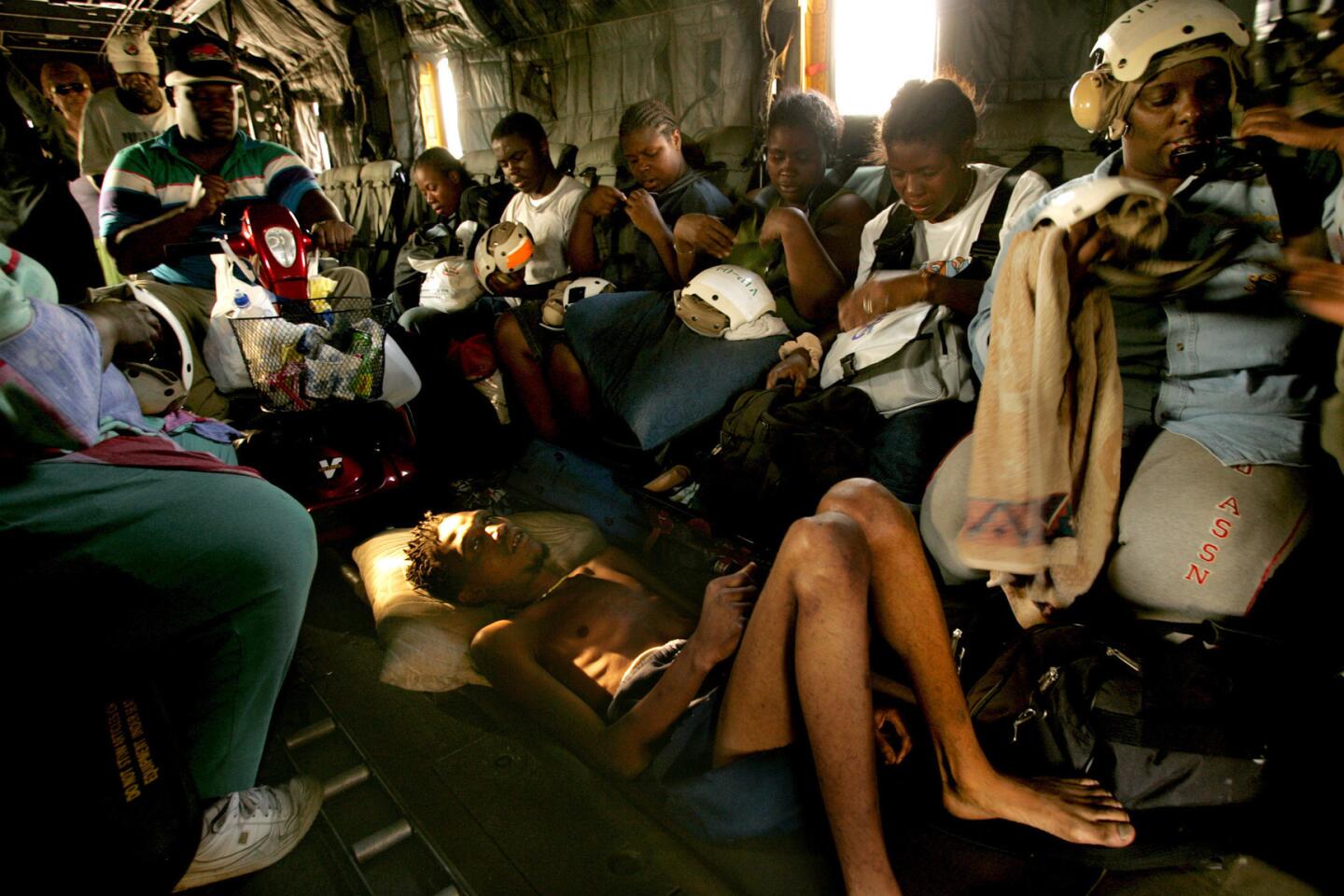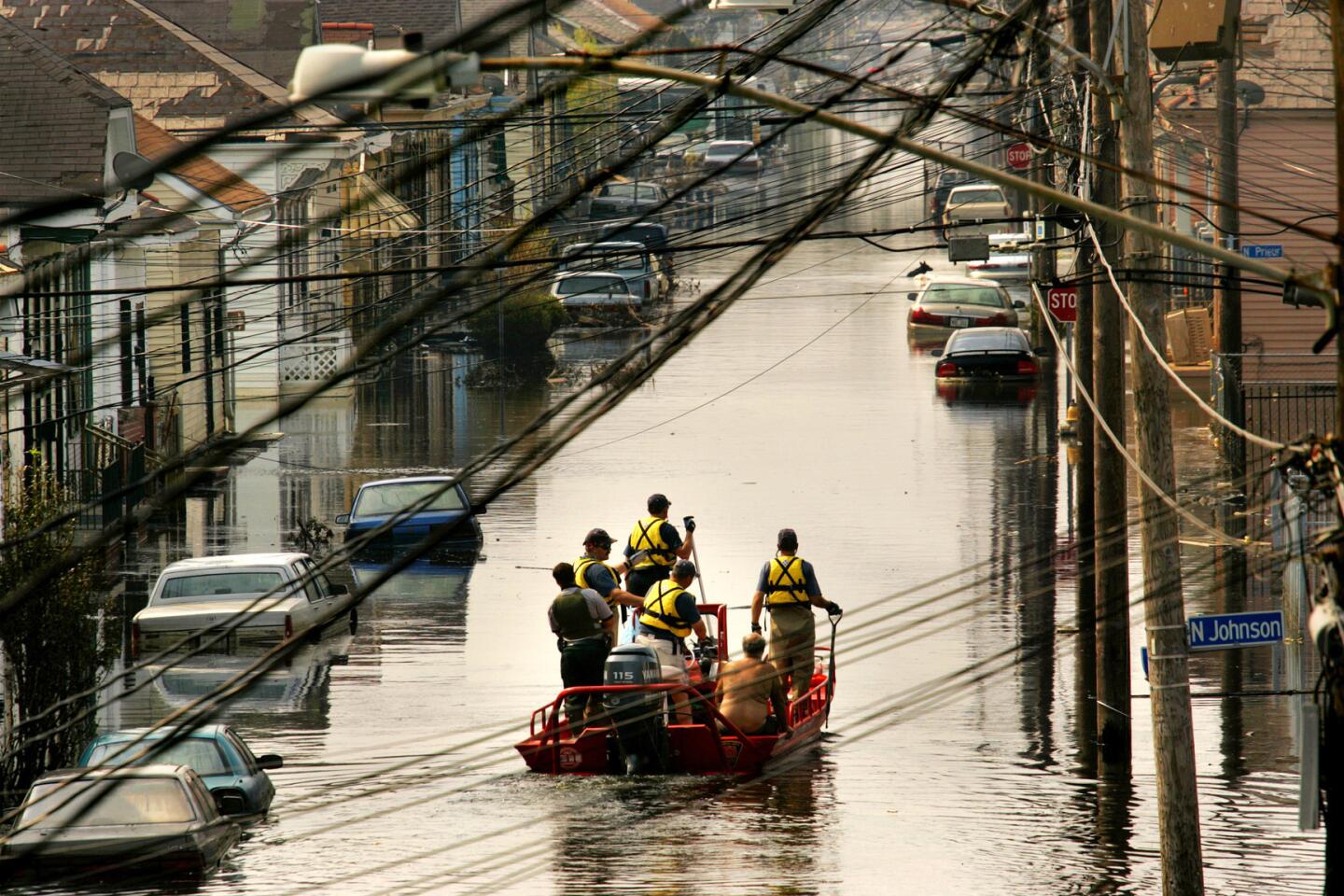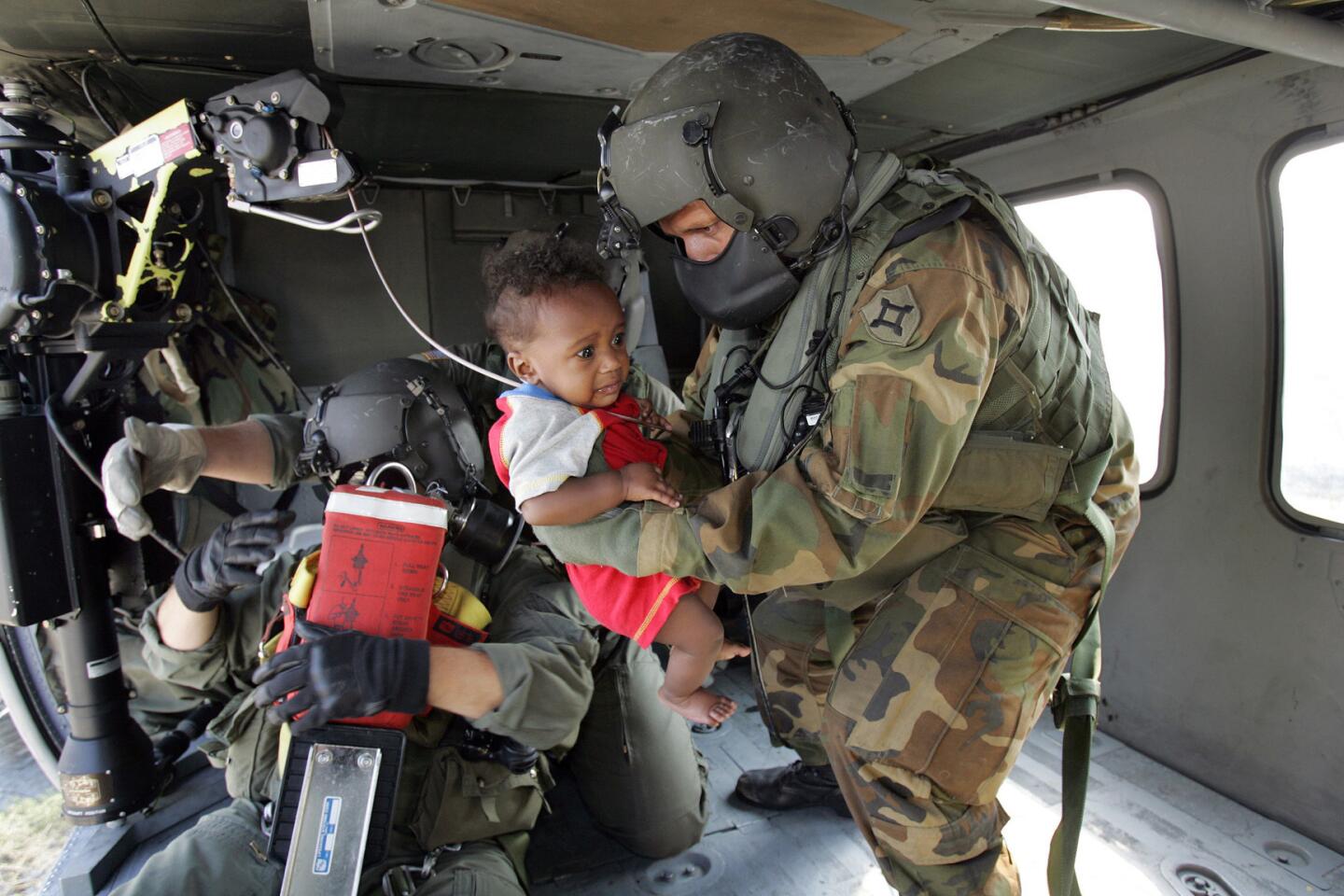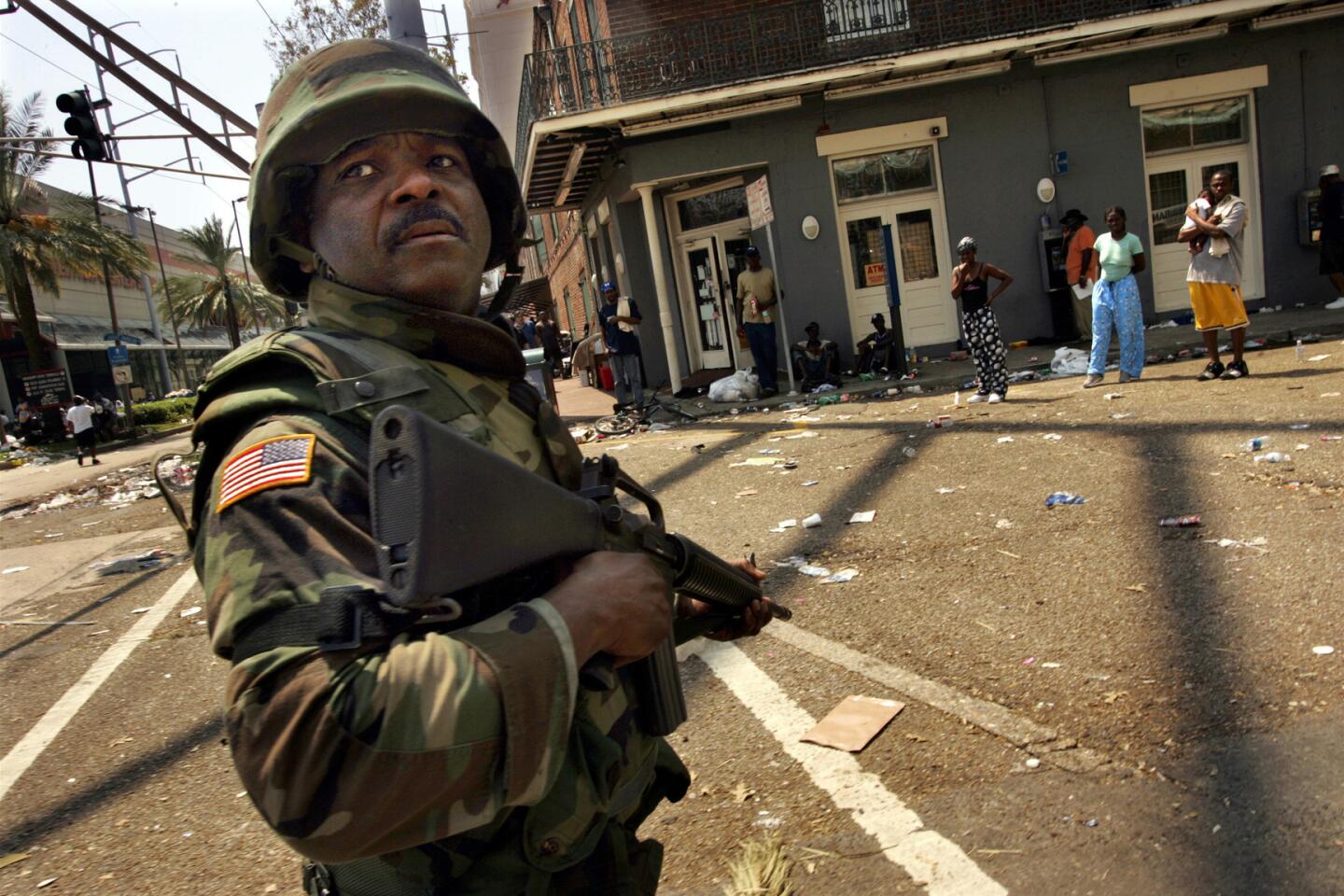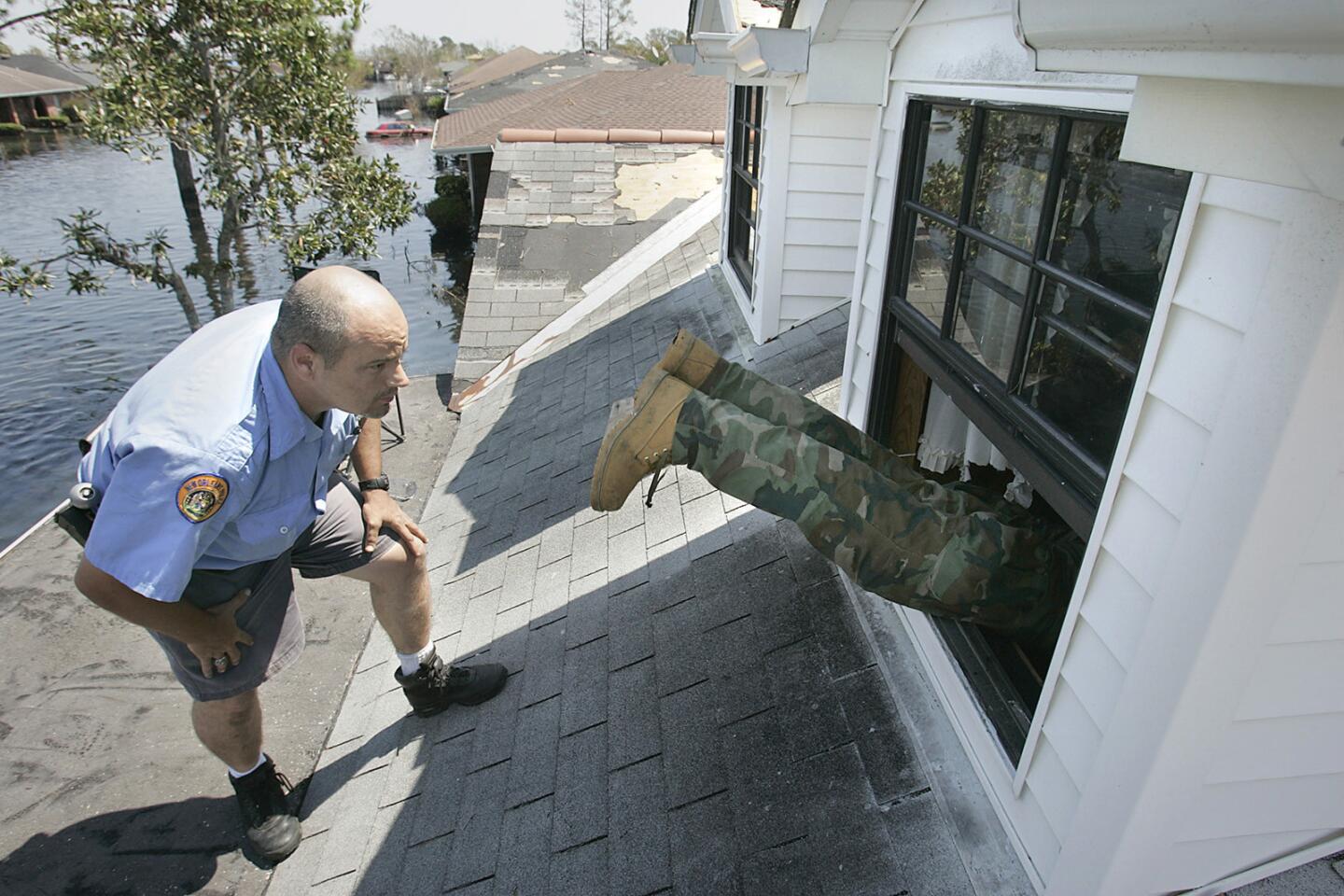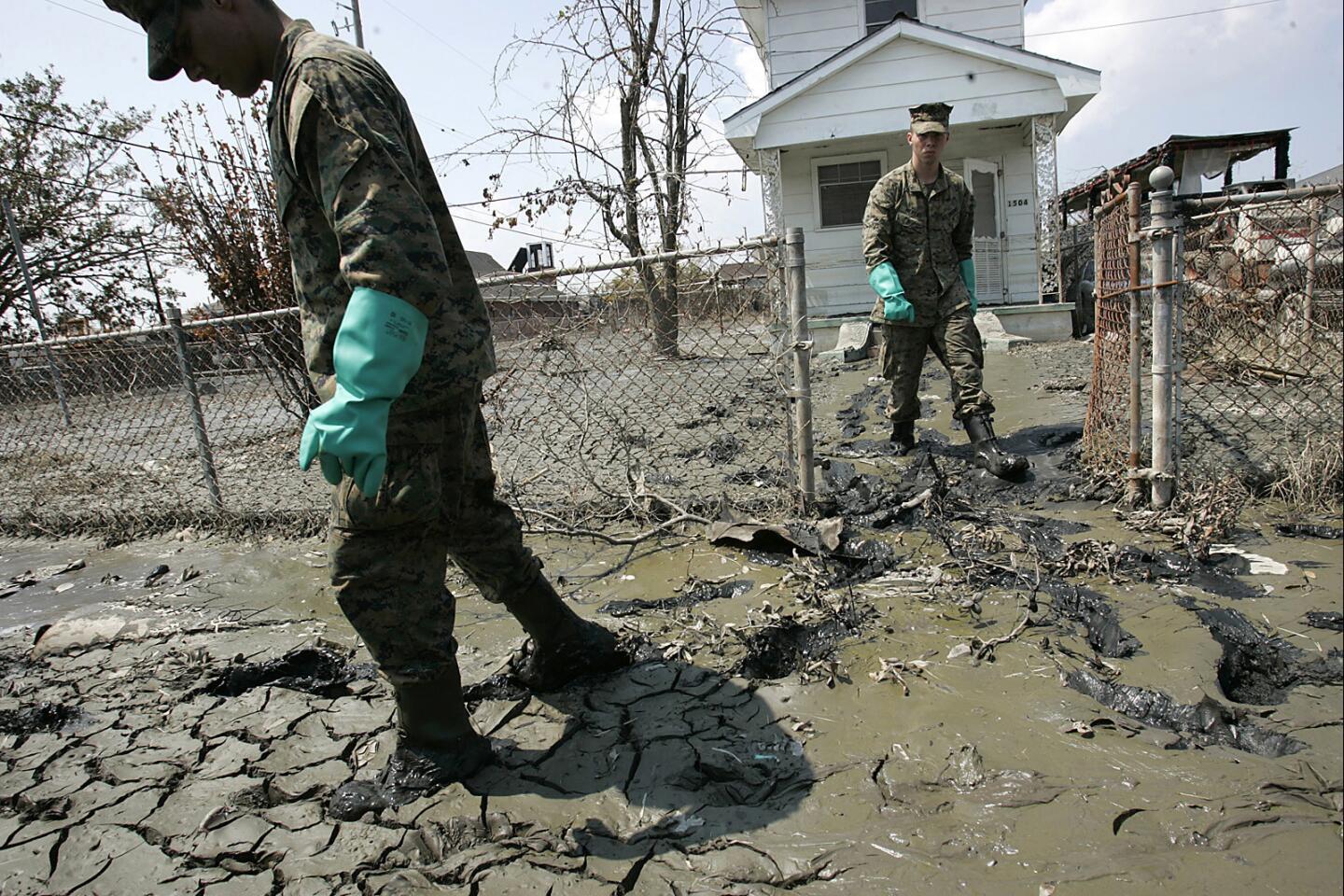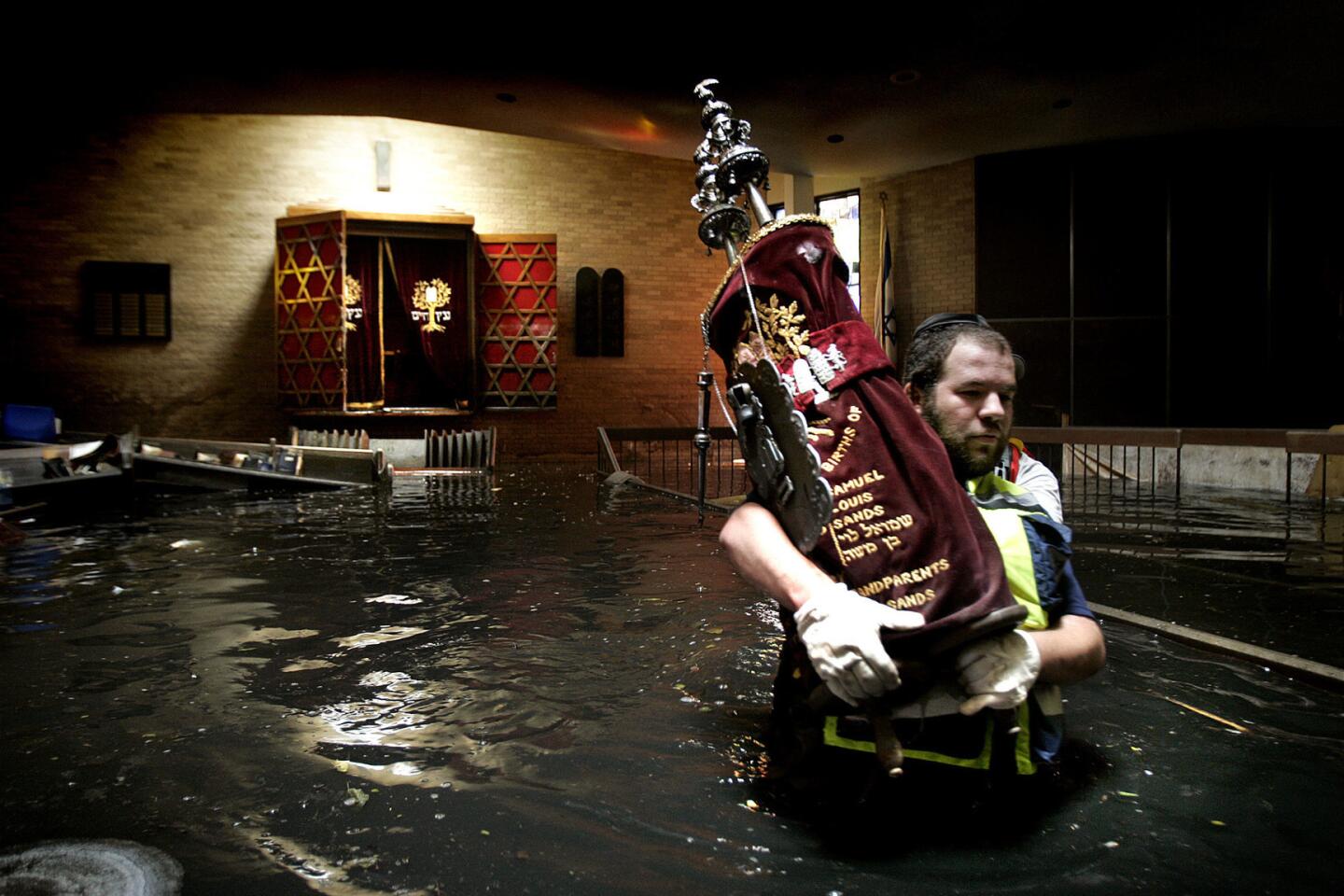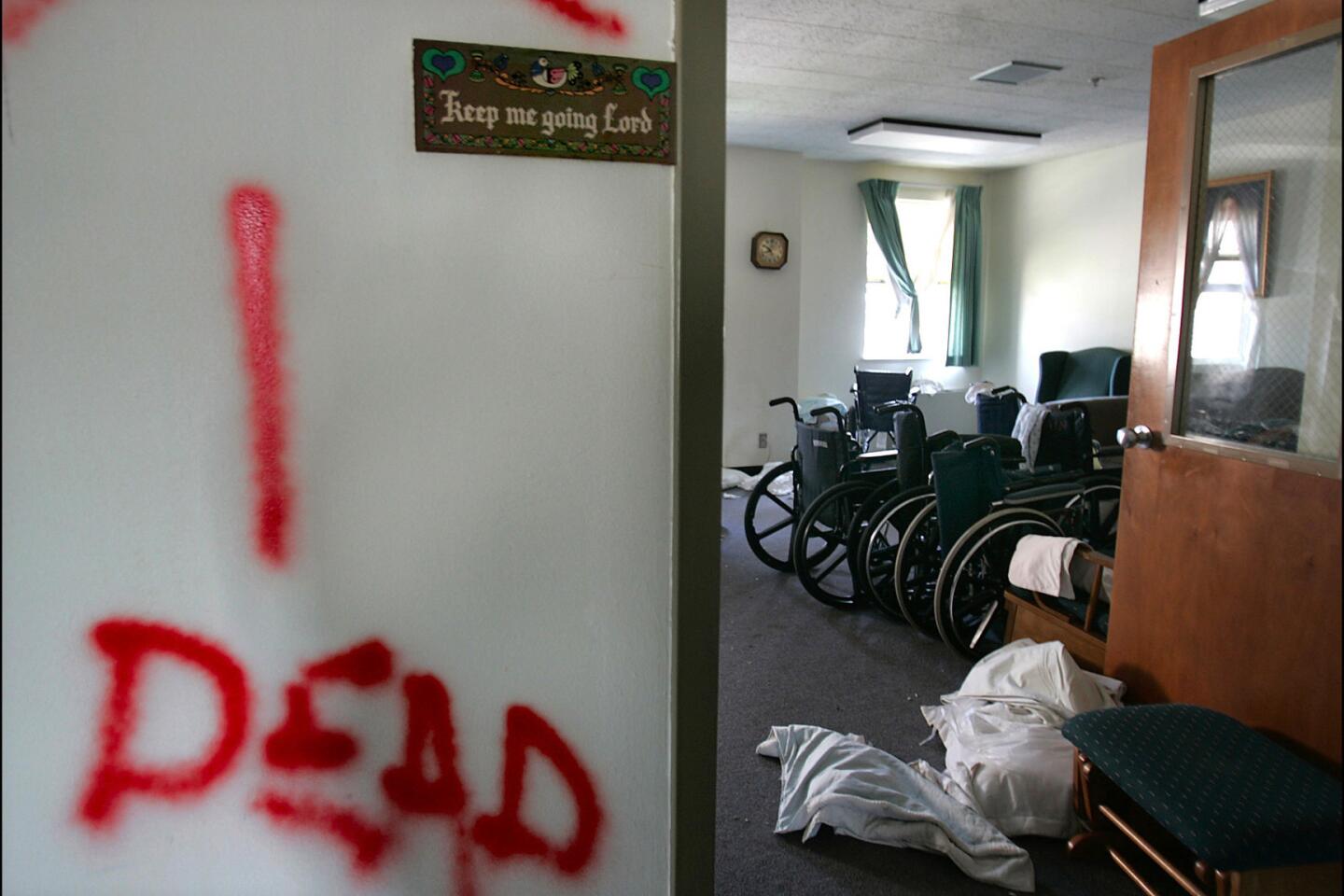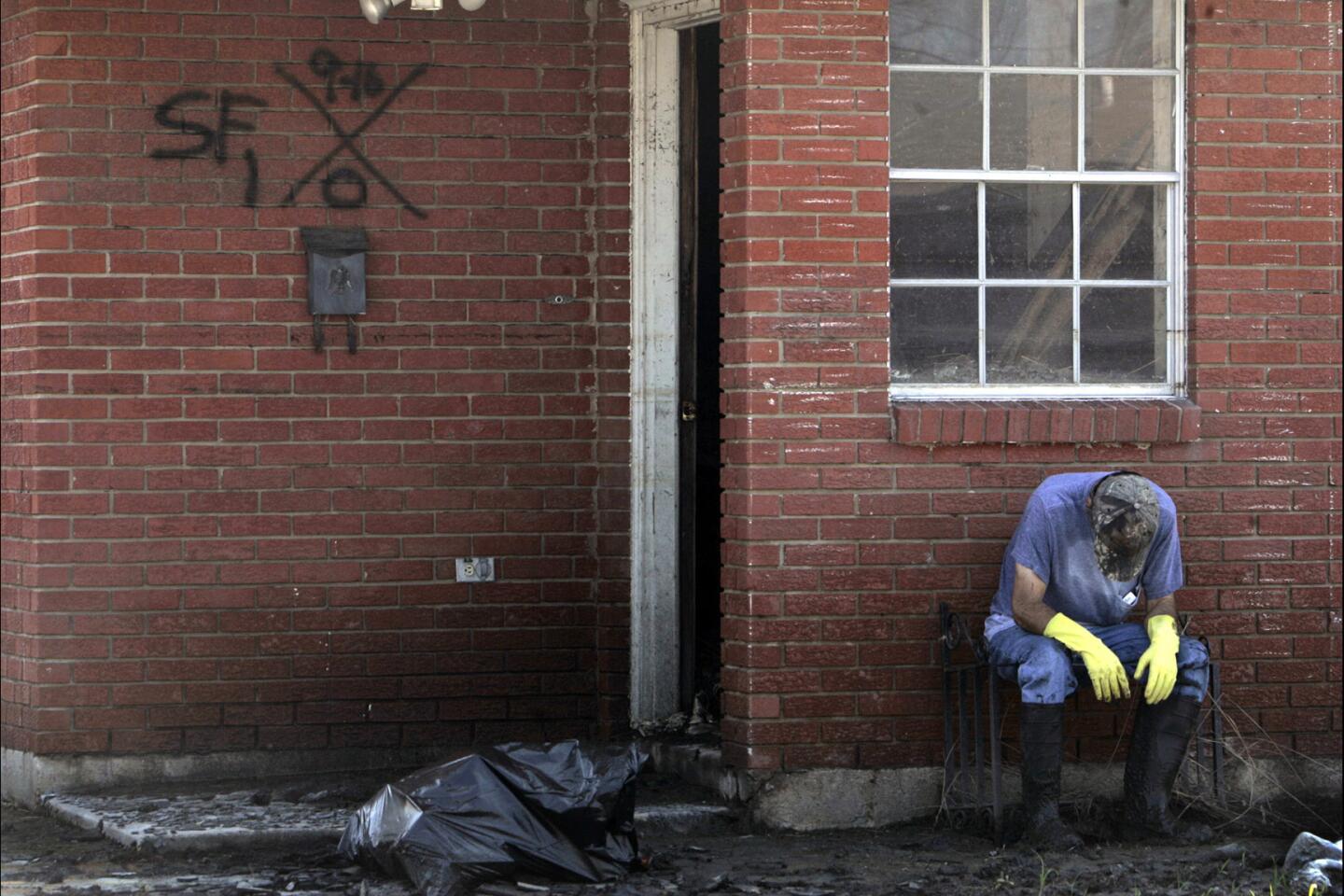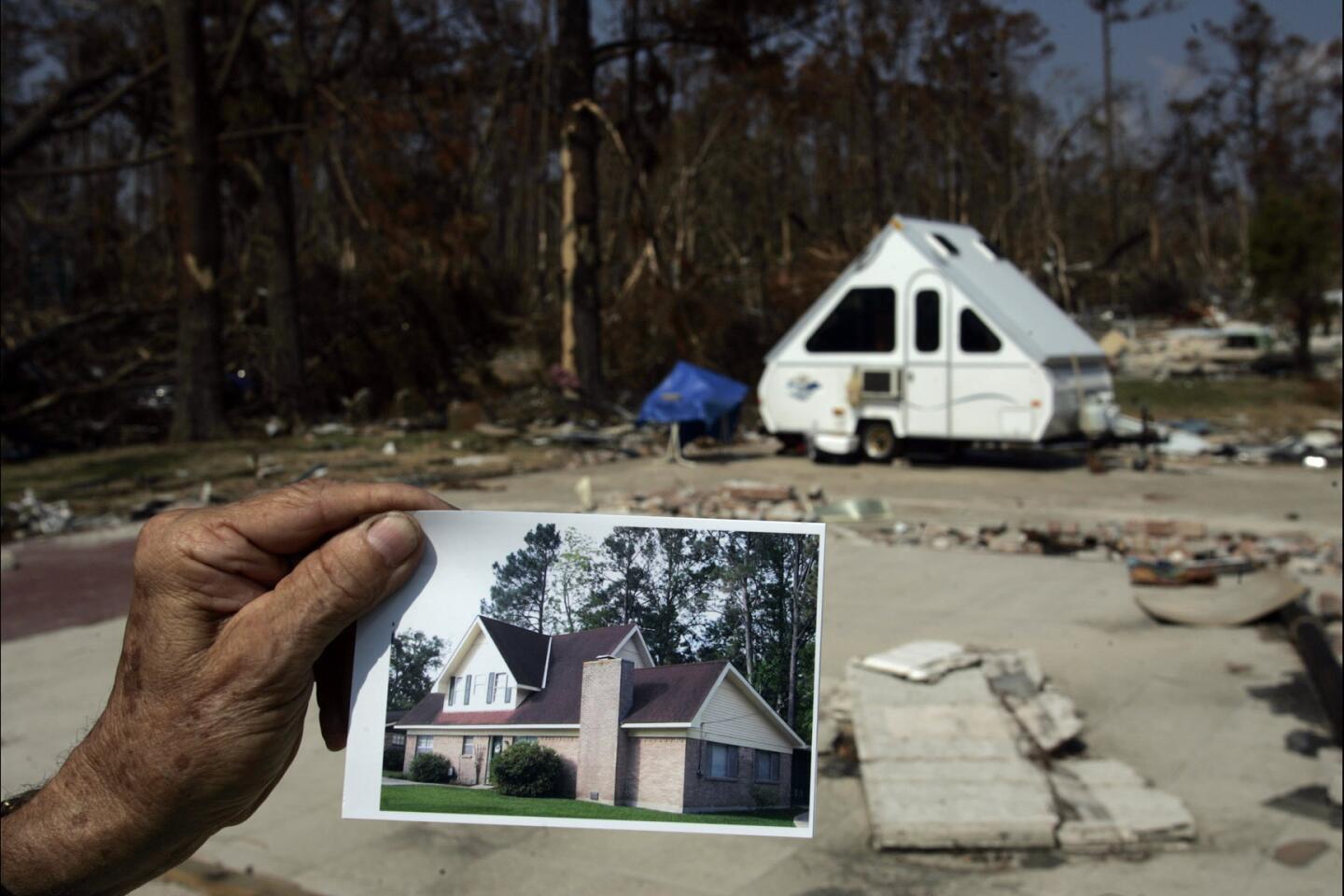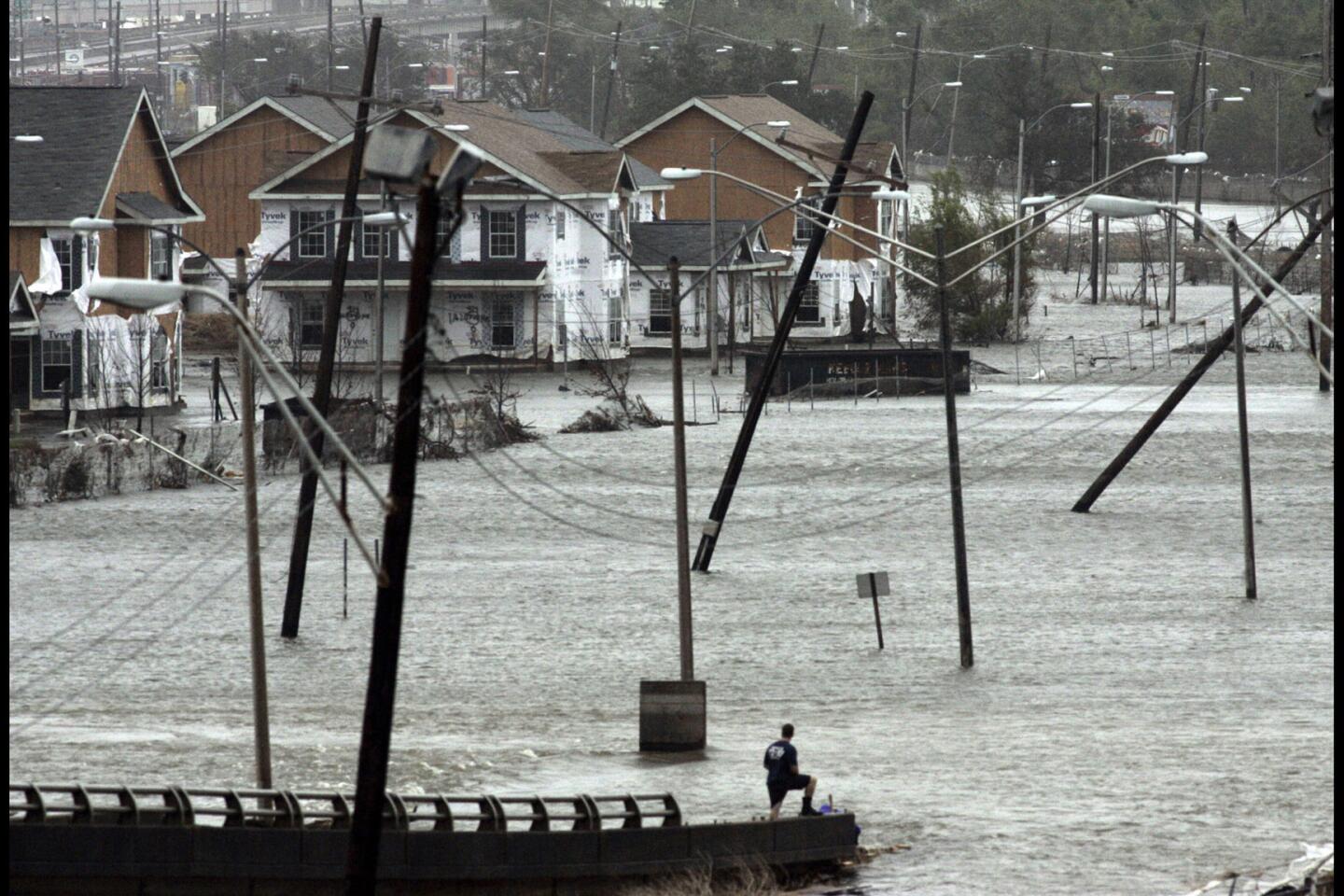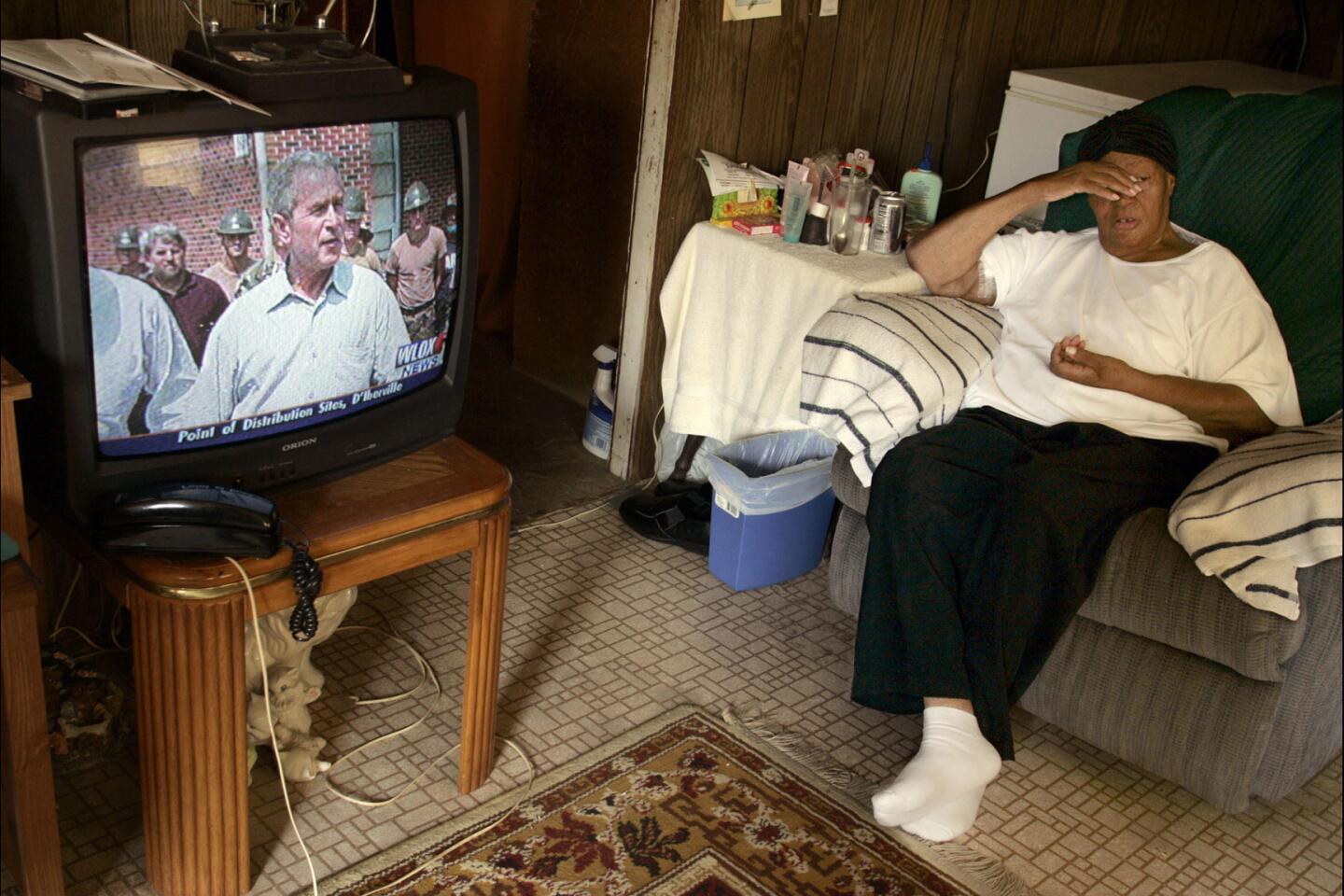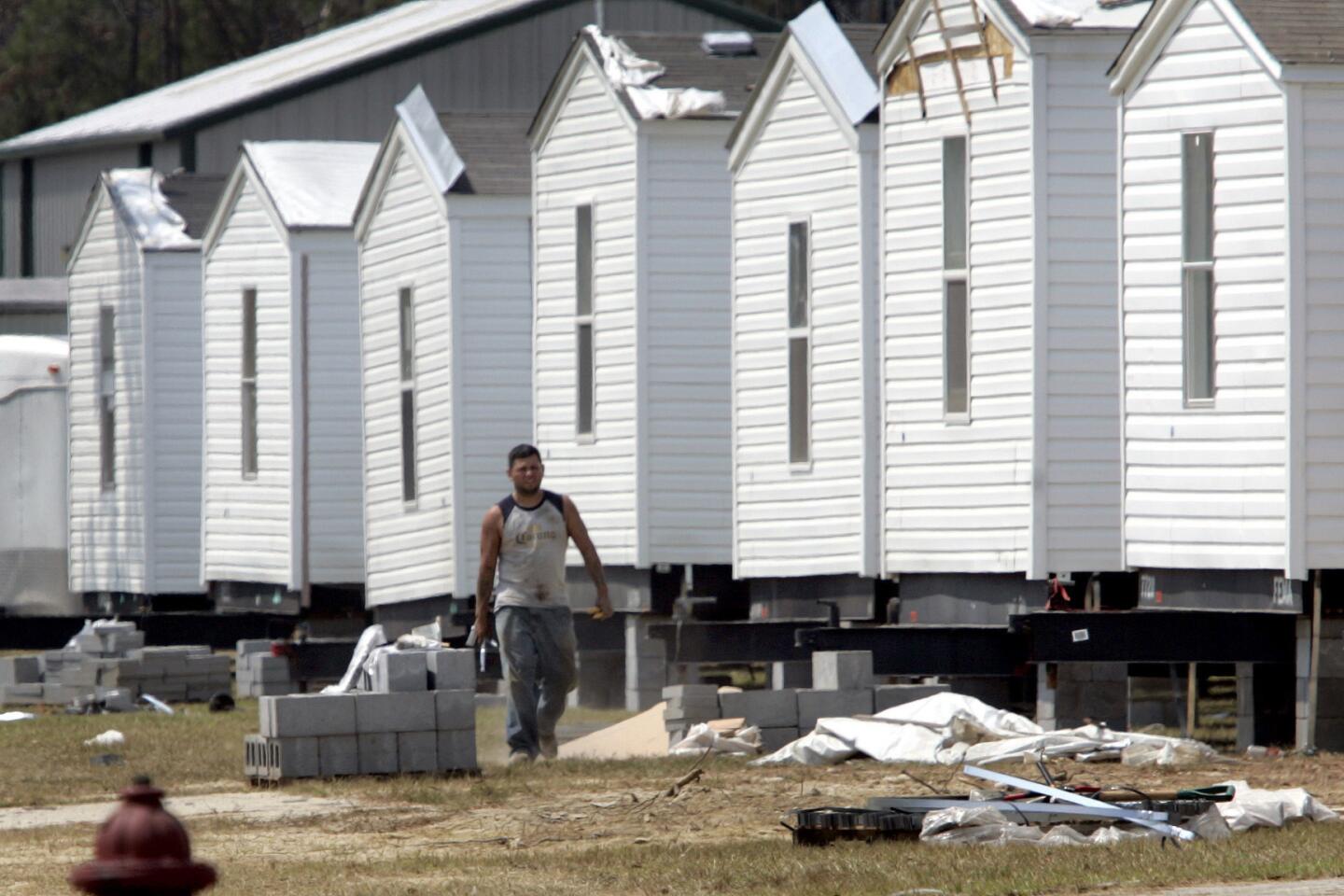New Orleans mayor announces $13.3 million in settlements over Hurricane Katrina police shootings
Reporting from NEW ORLEANS — The mayor of New Orleans announced Monday that the city has reached settlements totaling $13.3 million in lawsuits over deadly police shootings after Hurricane Katrina and a fatal beating just before the 2005 storm, and he apologized to the victims’ families on behalf of the city.
“I am hoping that in some sense the strength of these families will help the city find peace in our future,” Mayor Mitch Landrieu said at an afternoon news conference after a private prayer service attended by some relatives of the victims.
Landrieu said the settlements with 17 plaintiffs end all civil litigation involving those cases. It took more than 11 years because criminal cases had to be dealt with first, he said.
Sherrel Johnson, the mother of 17-year-old James Brissette, who died in the Sept. 4, 2005, shootings on the Danziger Bridge, was on hand for Landrieu’s announcement. She said she “wholeheartedly” accepts his apology.
“Since that time, it has been an awful long and rough road. But me and my family got through it,” she said. Later, she added, “Now this is closure for me, and I can go forward ... because I know the old New Orleans does not exist anymore.”
A total of 20 current or former New Orleans police officers were charged in a series of Justice Department civil rights investigations after the August 2005 storm. All but one of the cases centered on alleged police misconduct during the chaos that gripped the flooded city.
Eleven officers pleaded guilty to charges related to deadly shootings on a bridge less than a week after Katrina’s landfall. Officers shot and killed two unarmed people and wounded four others on the Danziger Bridge before engaging in a cover-up that included a planted gun, fabricated witnesses and falsified reports.
Brissette and 40-year-old Ronald Madison, a mentally disabled man, died in the bridge shootings. Lance Madison, Ronald’s brother, was on the bridge that day and was initially arrested after being falsely accused of shooting at officers.
Another brother thanked the mayor and police chief for reforms since the storm.
A federal judge who presided over a trial for five of the officers charged in the bridge shootings threw out their convictions in 2013. U.S. District Judge Kurt Engelhardt said at least three government attorneys posted anonymous comments on a New Orleans newspaper’s website, creating a “carnival atmosphere” that “distorted and perverted” justice in the case.
Engelhardt ordered a new trial for the five officers, who ultimately pleaded guilty in April. Lawsuits over the bridge shootings had been placed on hold while the criminal cases were pending.
Five other officers were tried on charges related to the death of 31-year-old Henry Glover, who was fatally shot outside a strip mall before his body was burned.
Former officer Gregory McRae, who burned Glover’s body in a car, is the only law enforcer whose conviction in the case still stands. McRae is serving a prison sentence of more than 11 years.
The officer who fatally shot Glover was convicted of manslaughter but was later acquitted by another jury after an appeals court awarded him a new trial.
Two former New Orleans police officers were convicted of charges stemming from the fatal beating of Raymond Robair, a 48-year-old handyman who died less than a month before Katrina struck.
Former training officer Melvin Williams was sentenced to more than 21 years in prison for kicking Robair, beating him with a baton, and telling doctors he was suffering from a drug overdose. Matthew Dean Moore, the recruit Williams was training at the time of the beating, was sentenced to more than five years in prison for submitting a false report and lying to the FBI about the encounter.
Robair’s relatives sued the city and former police Supt. Eddie Compass.
LaShonda Enclade, Robair’s daughter, attended the news conference. She said she forgives the city, but forgiving the officers is more difficult.
“The word forgive is a very, very, hard word. ... I’m not going to say I can ever forgive them. It’s something to be worked on,” she said.
UPDATES:
4:00 p.m.: This article was updated with additional details and context.
1:15 p.m.: This article was updated with the dollar amount to be paid in the settlements.
This article was originally published at 10:35 a.m.
More to Read
Sign up for Essential California
The most important California stories and recommendations in your inbox every morning.
You may occasionally receive promotional content from the Los Angeles Times.
